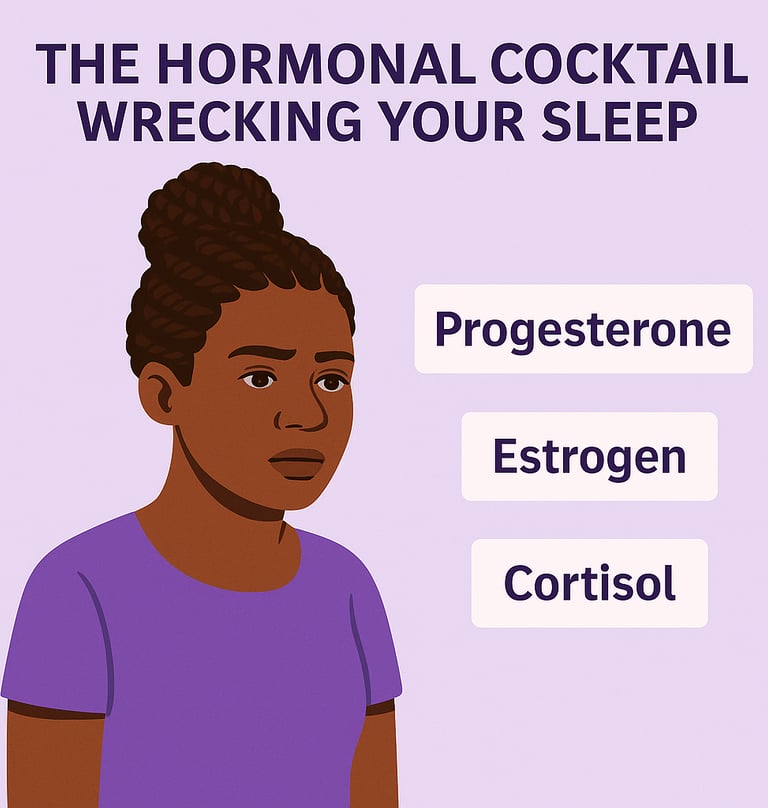Transform your health. transform your life.
The Hormonal Cocktail Wrecking Your Sleep
Three of the major hormones that impact sleep are discussed here. Understanding their role may help you to unpack why your sleep is disrupted and help you find effective solutions.
Zakiya Owens, MS, CHC
9/29/20251 min read


WHEN people say "it's my hormones" when they're struggling with sleep, it's true, but it's also vague. To truly address the problem, you need to know which specific hormones are involved. Today I present a three-part cocktail of disruption:
Progesterone: This is your "fall asleep" hormone, known for its calming, sedative effects. It's often the first to decline in perimenopause, making you feel more restless and making it harder to drift off at night.
Estrogen: This is your "stay asleep" hormone. As levels fluctuate, your body’s ability to regulate your body temperature is thrown off, leading to hot flashes. Its decline also disrupts overall sleep quality, making it harder to stay in a deep, restorative state.
Cortisol: The "stress hormone" should be at its lowest at night. But during perimenopause, its pattern can be disrupted, causing it to spike in the middle of the night. This leads to that classic 3 a.m. wake-up call, often accompanied by a racing mind and feelings of anxiety.
Understanding the distinct role of each hormone helps you connect your specific sleep problem to a direct biological cause (and solution). You are NOT crazy or broken, your body IS changing. This knowledge transforms your experience from feeling random and chaotic to something understandable and, therefore, manageable.
You deserve to live well!
Empowering women to thrive through mid-life.
© 2025. All rights reserved.
